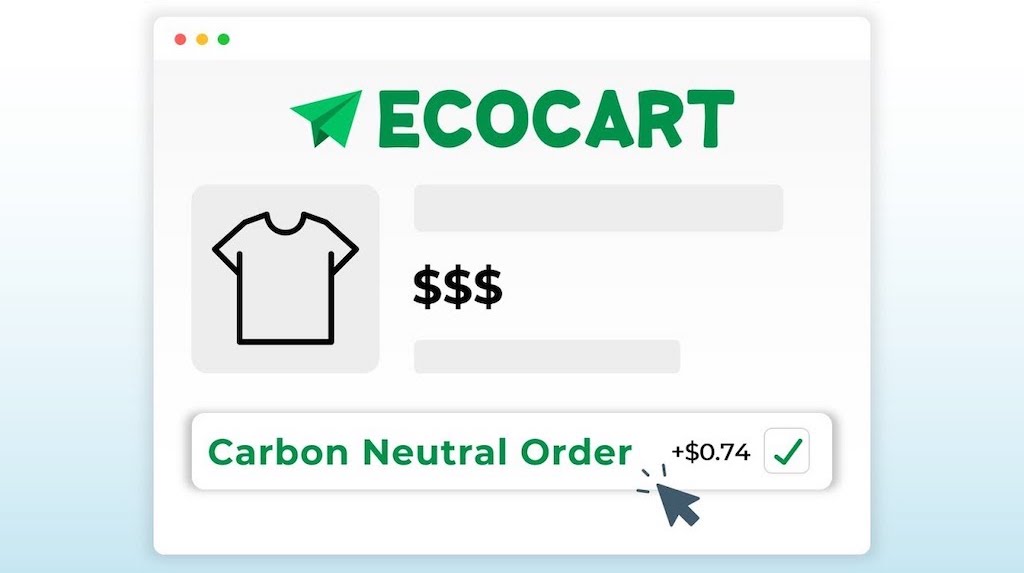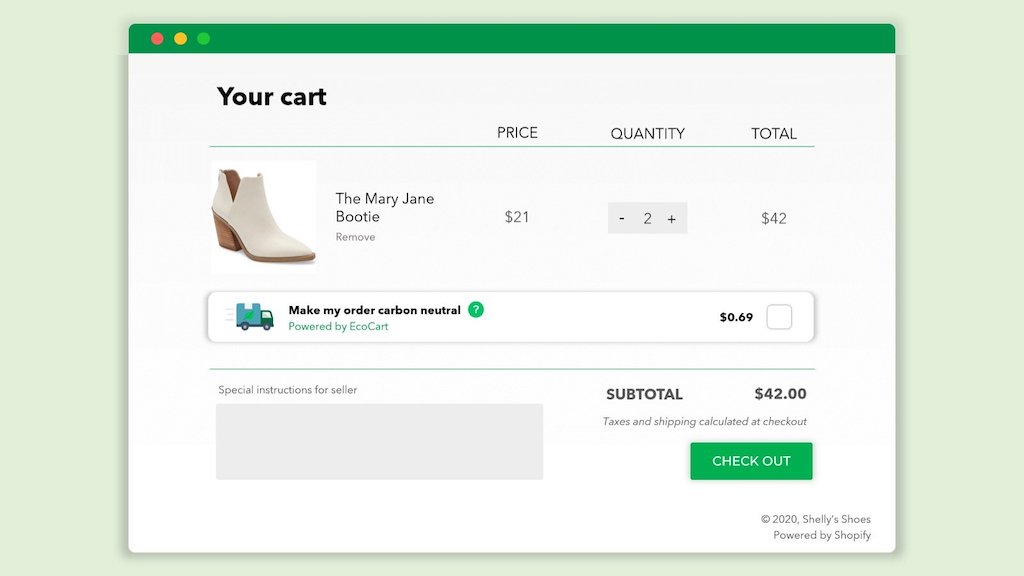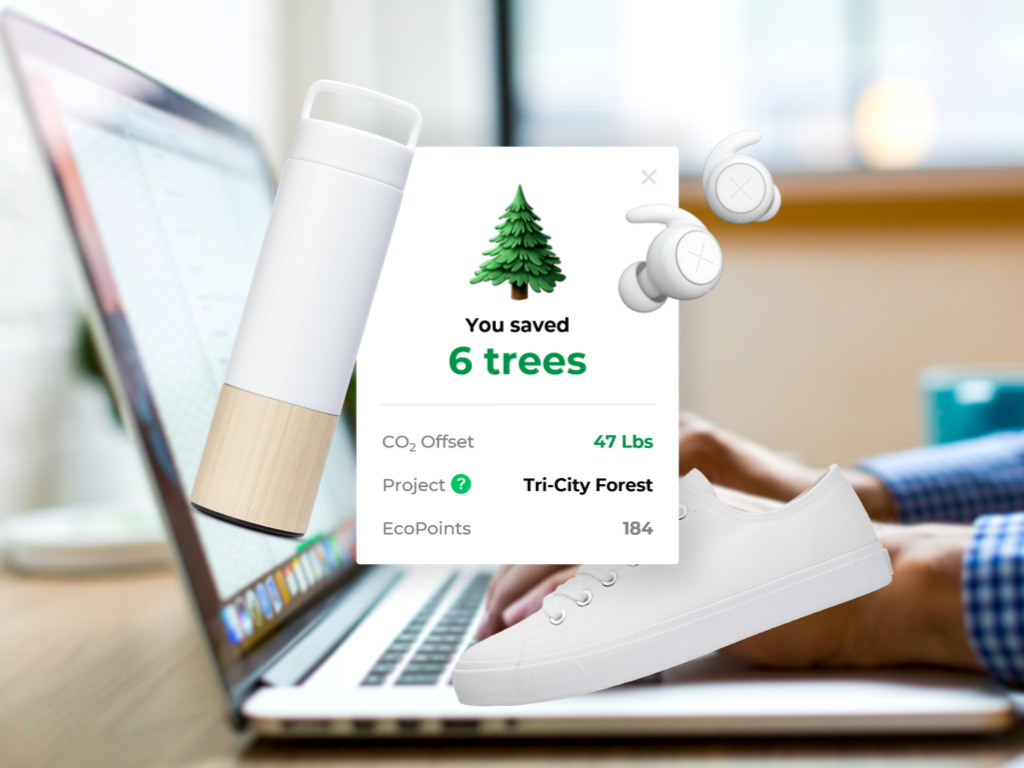4 Mins Read
Ever since the pandemic, many of us have turned to online shopping and other e-commerce services for our daily purchases. Even boomers have gotten more tech-savvy because of the crisis, now officially the fastest-growing category of online shoppers. But our ordering frenzy is driving up our carbon footprint, says San Francisco-based startup EcoCart, who has just launched a new free-to-use extension that automatically offsets your online shopping in a bid to mitigate some of the impact we’re having on the environment.
Launched in October 2020, the tool calculates the carbon footprint of orders from over 10,000 e-commerce stores supported by the platform, such as Vans, Levi’s, Footlocker and Sephora, and helps you offset that impact. It’s free for all to download on the Google browser Chrome, and comes at no additional cost for consumers to feel a little less guilty about their online purchases, which have no doubt gone up ever since the coronavirus hit.
Even before pandemic times, shoppers in the U.S. alone were already ordering enough e-commerce packages to travel the same distance as going to the moon and back a whopping 133,000 times. So for Dane Baker, co-founder and CEO of EcoCart, the decision to develop a solution to counteract the emissions we’re generating through our digital orders was vital.
We’re excited to give consumers the power to offset the carbon impact of their online orders. The EcoCart Chrome Extension makes sustainability a no-brainer.
Dane Baker, Co-Founder & CEO, EcoCart

“Sustainability should be easy and accessible for everyone,” said Baker. “We’re excited to give consumers the power to offset the carbon impact of their online orders. The EcoCart Chrome Extension makes sustainability a no-brainer.”
You might be a little confused how it really works. Basically, EcoCart works like a cash-back browser browser extension, and if you shop on the platform’s supported stores, the extension prompts you to make your order carbon neutral without having to pay a dime.
Businesses are the ones who sign up to be a part of the platform, and they’re motivated to do so to improve conversion amongst the increasingly eco-conscious swathes of consumers who have indicated greater willingness to purchase from brands who “take a stand” on environmental and social issues.
EcoCart automatically calculates the emissions of your unique order – whether it’s groceries, shoes or fuzzy home slippers to get through lockdown – and offsets it by donating to a vetted group of carbon offsetting projects. How the startup calculates the carbon footprint of your order is based on its algorithm, which takes into account what your item actually is, the shipping distance required, and package weight to estimate the emissions created from transporting that order.
Some of these projects supported by EcoCart include forest protection missions in Massachusetts, or providing clean water to rural Cambodian communities, or even building new wind turbines in Turkey – and you’re able to choose which one you want to support.

With environmental conditions quickly destabilising, greatly threatening life and livelihood around the globe, now is the time to tap the power of e-commerce for good.
Clayton Bryan, Venture Partner, 500 Startups
As more of us begin to realise the impact of our digital actions, recent research finds that the majority of the public are actually demanding more tech-forward innovations to help them make better eco-friendly decisions. It’s something that Clayton Bryan, venture partner at 500 Startups, the venture fund that has backed EcoCart, believes is important to shift towards a more sustainable economy.
“The e-commerce space represents immense value. Trillions of dollars worth of value. With environmental conditions quickly destabilising, greatly threatening life and livelihood around the globe, now is the time to tap the power of e-commerce for good,” Bryan said.
“Climate change is real and it’s here and I’m always excited to see companies taking matters into their own hands to make a positive impact towards a carbon neutral future,” commented Dr. Zhi-yong Yin, an environmental and ocean sciences professor at the University of San Diego.
Among some of the other browser plug-ins that are now available include TreeClicks, which also helps online shoppers offset their footprint by supporting tree planting and reforestation projects, and The Vegan Filter, which makes it easier for users to find sustainable plant-based groceries, vegan fashion and cosmetics.
Read about all the newest sustainability tech-for-good apps and tools here.
Lead image designed by Green Queen Media / courtesy of EcoCart & Unsplash.




